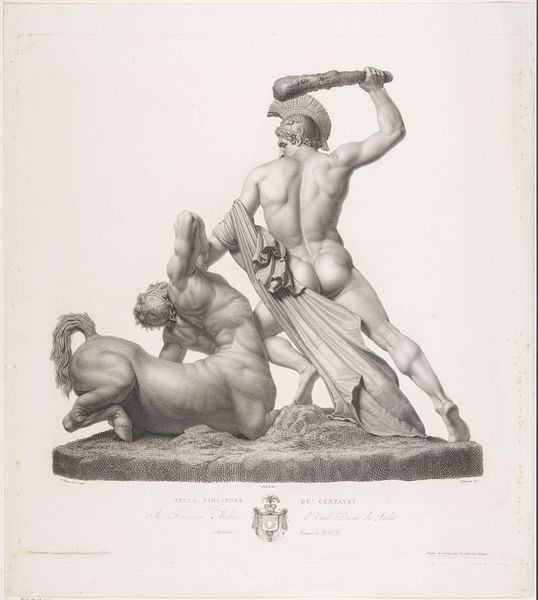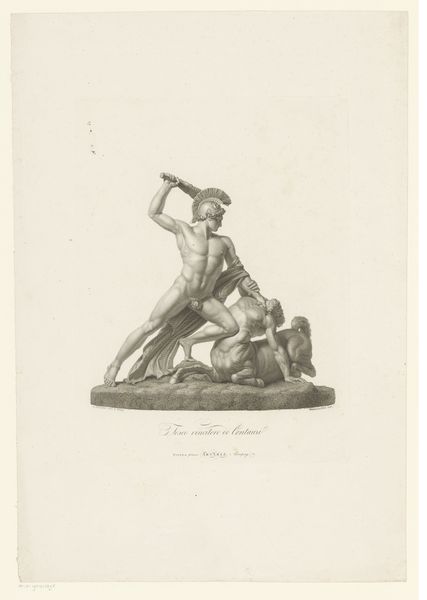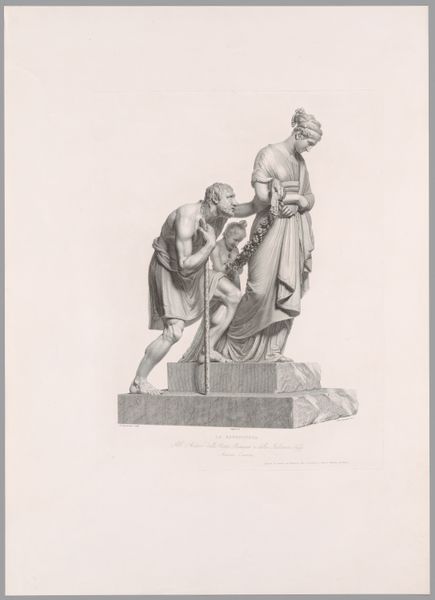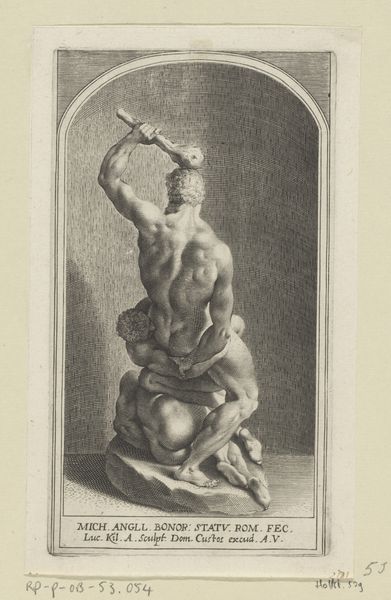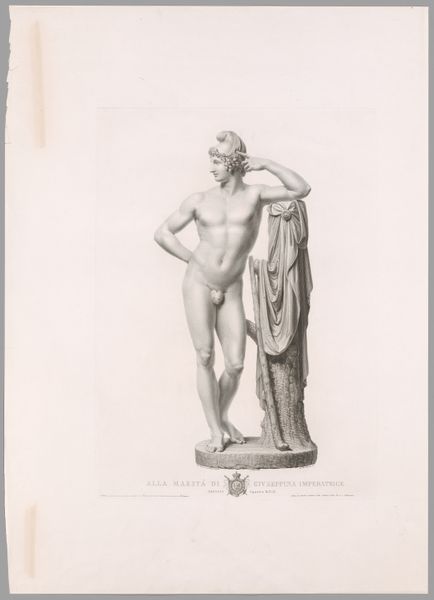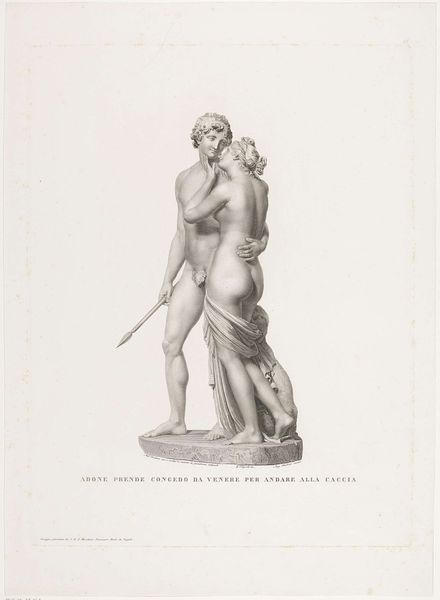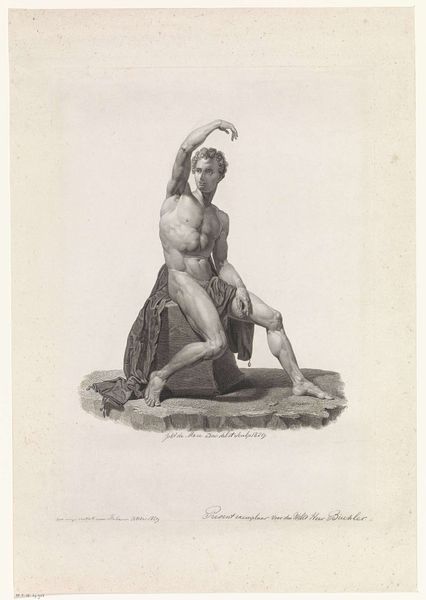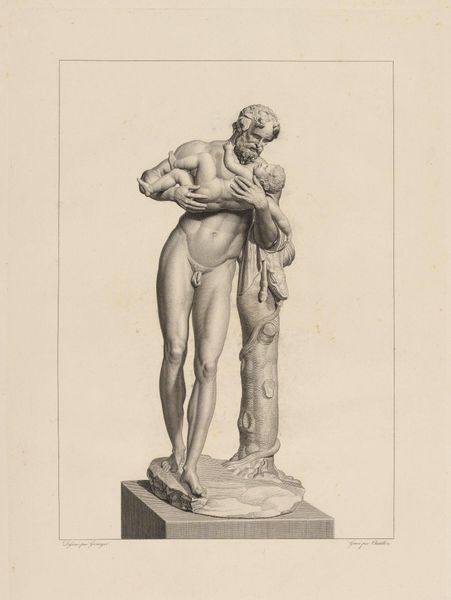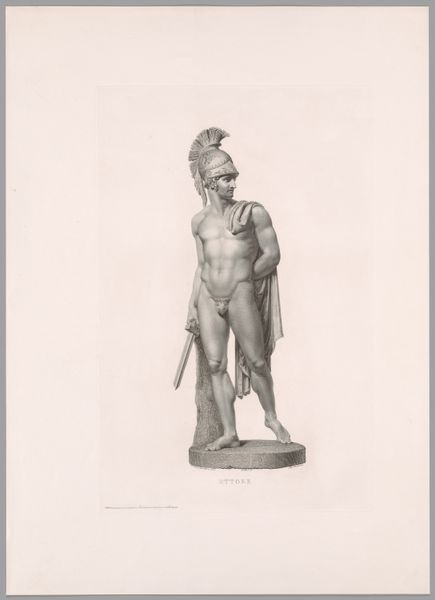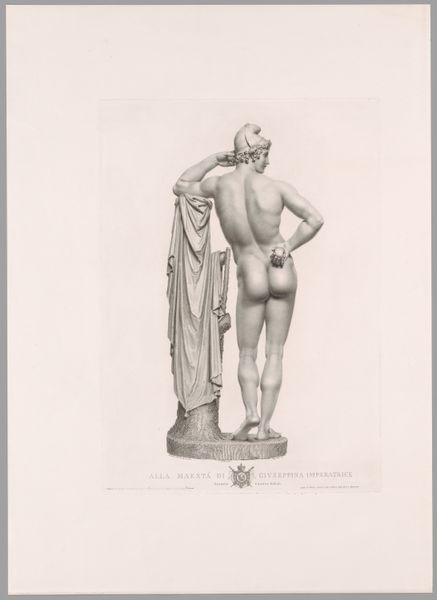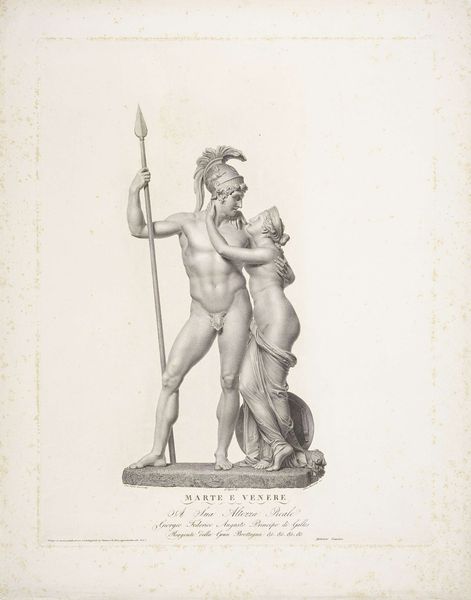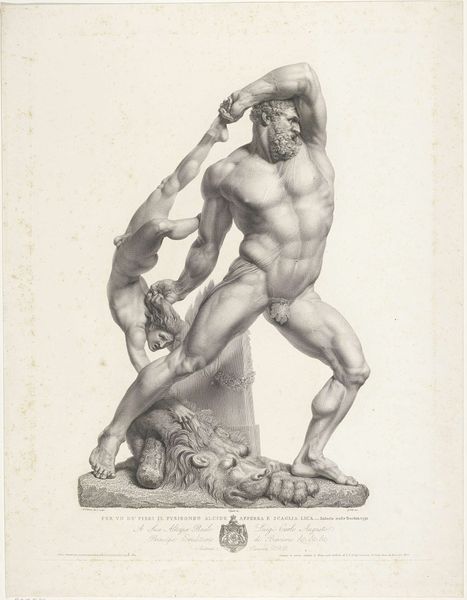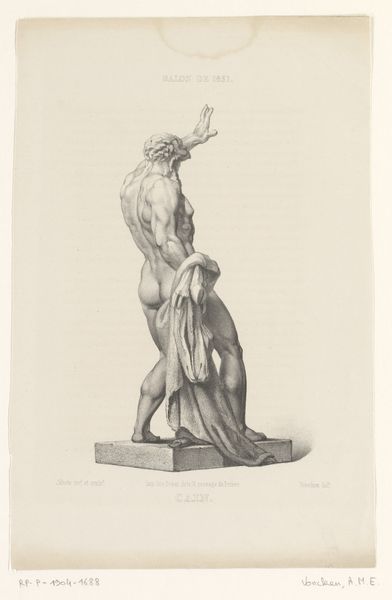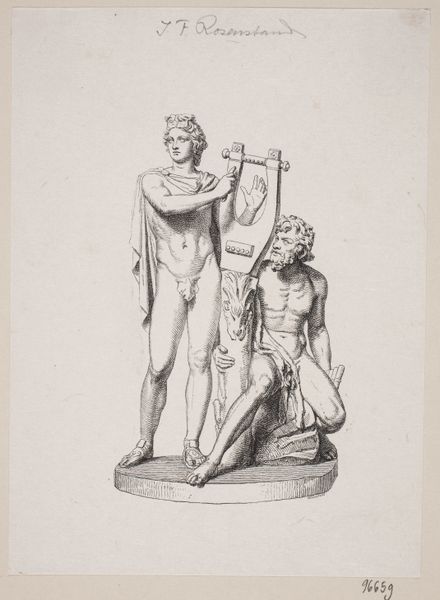
Theseus and Centaur, Front View, from Oeuvre de Canova 1817
0:00
0:00
drawing, print, etching, bronze, paper, ink, marble, engraving
#
pencil drawn
#
drawing
#
neoclacissism
# print
#
etching
#
pencil sketch
#
greek-and-roman-art
#
landscape
#
bronze
#
figuration
#
paper
#
ink
#
pencil drawing
#
history-painting
#
marble
#
engraving
Dimensions: 582 x 556 mm (plate); 860 x 620 mm (sheet)
Copyright: Public Domain
This print, made after Antonio Canova's sculpture, captures a dramatic clash between Theseus and a centaur. It was reproduced using etching and engraving, processes that demand skilled labor and a deep understanding of materials. The print’s fine lines mimic the smoothness of Canova's original marble, emphasizing the physicality of the struggle. These printmaking techniques aren't spontaneous. They require careful planning and precise execution to translate three-dimensional form into a two-dimensional image, balancing light and shadow to suggest the sculpture's volume. Looking closely, you can see the engraver's hand in the cross-hatching that builds up the centaur's muscular form, and the linear precision defining Theseus’s anatomy. The original sculpture was commissioned, reflecting the patron's wealth and the artist's place within a network of social and economic exchange. The print allows for the broader distribution of Canova’s work, inviting us to consider how the value and experience of art shift as they move through different modes of production and consumption.
Comments
No comments
Be the first to comment and join the conversation on the ultimate creative platform.
